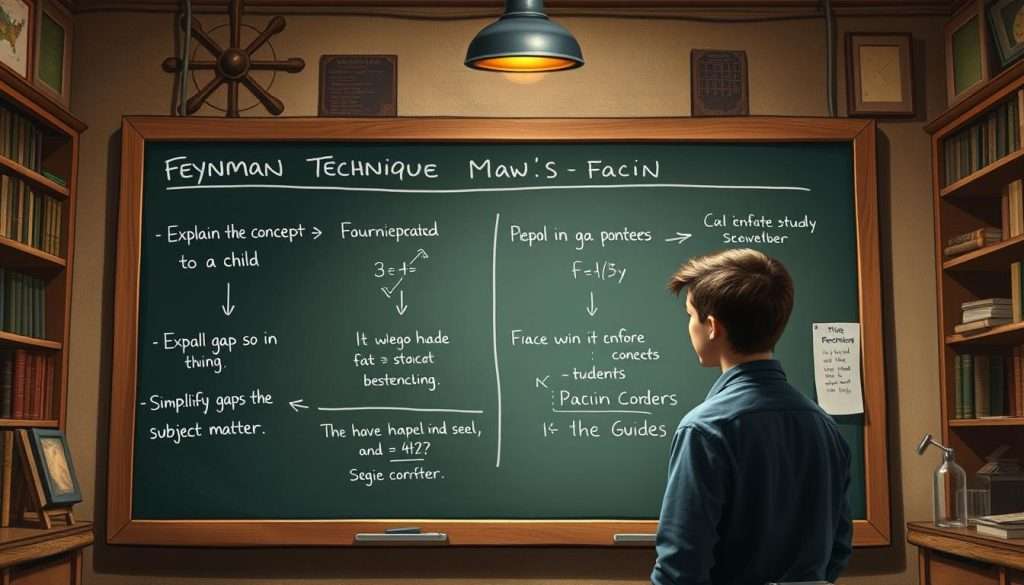“You don’t have to be great to start, but you have to start to be great.” – Zig Ziglar. Tackling tough topics can seem overwhelming. But, with the right tools and approach, you can succeed.
Learning complex subjects is more than just memorizing. It’s about understanding deeply and applying what you know. That’s where expert help shines – offering academic study tips and support to beat challenges.
The Conquer learning app is here to help you master complex subjects. It offers expert courses and study plans you can customize. With these tools, you can learn more effectively and reach your goals.
Key Takeaways
- Expert guidance can significantly improve your ability to learn complex subjects.
- Personalized study plans help tailor the learning experience to your needs.
- Effective learning strategies can make a significant difference in academic success.
- The Conquer learning app offers a comprehensive solution for mastering difficult topics.
- Achieving academic goals is within reach with the right tools and support.
The Challenge of Learning Complex Subjects
Learning tough subjects needs more than just hard work; it requires a strategic approach to learning. Forbes Coaches Council members say that complex subjects need more commitment and focus. But what makes these subjects so hard to learn?
Why Some Subjects Seem Impenetrable
Some subjects seem hard because they are abstract or have complex ideas. For example, advanced math or complex scientific theories can be tough. The trick is to break them down into smaller parts. Use cognitive learning strategies to make the information easier to understand.
The Psychology Behind Learning Difficulties
Learning difficulties often come from too much information and mental blocks. When our brains get too much info, we feel overwhelmed. This can make us frustrated and less motivated. Using advanced learning techniques like chunking and spaced repetition can help.
Common Barriers to Advanced Learning
Common barriers include not having good educational resources, bad study methods, and poor time management. It’s important to know these barriers to overcome them. By using the right educational resources and study methods, you can reach your learning goals.
Understanding the challenges and using the right strategies can help you master even the toughest subjects.
Understanding Your Learning Style
Figuring out how you learn is a big step in mastering complex subjects. Everyone learns in their own way. Knowing your learning style can make studying much better.
By figuring out how you learn best, you can change your study habits. This makes learning more fun and effective.
Visual, Auditory, Reading/Writing, and Kinesthetic Learners
There are four main learning styles: visual, auditory, reading/writing, and kinesthetic. Visual learners do well with pictures, diagrams, and videos. Auditory learners like listening to lectures or audio.
Reading/Writing learners do great with written stuff and taking notes. Kinesthetic learners learn best by doing things hands-on.
How to Identify Your Primary Learning Style
Finding out your main learning style takes some thinking and paying attention. You can start by taking quizzes or thinking about how you’ve learned before.
Self-Assessment Quizzes and Observations
Online quizzes can show your learning style by asking about your likes and habits. Also, watching how you learn can give you clues. For example, do you like making diagrams or listening to books?
Recognizing Learning Patterns
Notice how you naturally learn things. Do you remember better when it’s shown in a certain way? Spotting these patterns can help you find your main learning style.
Adapting Study Methods to Your Learning Preferences
After figuring out your learning style, you can change your study ways. For instance, if you’re a visual learner, use more pictures and mind maps. ConquerMaths offers a personalized learning experience with its tech, which is great for customizing your study plan.
Breaking Down Complex Topics into Manageable Parts
When you face complex topics, the secret to success is breaking them down. This makes them easier to handle. You can then understand each part well, building a strong foundation over time.
The Chunking Technique
The chunking technique is a great way to break down big information into smaller bits. It helps you avoid feeling overwhelmed. You can then focus on one idea at a time.
Identifying Core Concepts
To use the chunking technique well, start by finding the main ideas in the topic. These are the key concepts that make up the subject.
Creating Logical Groupings
After finding the main ideas, group similar information together. This makes logical categories that are easier to remember and organize.
Creating Concept Maps and Knowledge Trees
Creating concept maps or knowledge trees is another smart strategy. These visual aids show how different ideas are connected. They help you see how everything fits together.
- Start with a central idea or concept.
- Branch out to related subtopics or subconcepts.
- Use colors, symbols, and images to make it more appealing and memorable.
Progressive Learning: Building from Fundamentals
Progressive learning means learning bit by bit, starting with the basics. Then, you move on to harder topics. This way, you build a strong base before tackling tougher subjects.
“The Forbes Coaches Council suggests using the chunking technique to break down complex topics into manageable parts.”
By using chunking, concept mapping, and progressive learning together, you can really understand complex subjects. This method not only improves your understanding but also boosts your confidence when dealing with tough topics.
Effective Study Techniques for Complex Material
Learning complex subjects needs a careful approach. Effective study techniques are key. It’s not just about studying a lot. It’s about studying smart.
Active Recall and Spaced Repetition
Two great methods are Active Recall and Spaced Repetition. Active Recall means you actively try to remember information. You can use flashcards, quizzes, or write notes in your own words. Spaced Repetition means reviewing material at longer intervals to keep it in your memory.
Using both methods can help you remember and understand complex material better. For example, make flashcards with key terms and their meanings. Then, review them at longer intervals.
The Feynman Technique for Deep Understanding
The Feynman Technique helps you understand complex subjects deeply. It’s a simple yet effective method. It breaks down complex ideas into simple, easy-to-understand explanations.
Step 1: Choose and Study the Concept
First, pick a concept you want to learn. Study it until you understand it well.
Step 2: Teach It Simply
Then, explain the concept to someone else in simple terms. Imagine you’re talking to a child. This helps you simplify your understanding.
Step 3: Identify Gaps and Refine
Next, find any gaps in your explanation. Improve your understanding by filling those gaps.
Step 4: Simplify and Use Analogies
Make your explanation even simpler. Use analogies to make it easier to remember and understand.

Interleaving: Mixing Related Concepts
Interleaving mixes different related topics together. Instead of focusing on one topic, mix them to see their connections. This method helps you understand complex subjects better. It also improves how you apply what you’ve learned.
Developing Critical Thinking Skills
Learning to think critically is a big step up when dealing with tough subjects. It helps you break down complex info, check the facts, and come up with solid conclusions. At ConquerMaths, we focus a lot on critical thinking in our interactive lessons.
Analytical Reasoning Strategies
Analytical reasoning means breaking down big info into smaller bits. To get better at this, try spotting patterns, comparing data, and seeing cause-and-effect. For example, when you’re solving math problems, using analytical reasoning can help you find the best way to solve them.
Questioning Assumptions and Evaluating Evidence
Critical thinking means doubting what you’re told and looking for solid sources. It’s about being careful with the info you get and checking if it’s true. When you’re looking at evidence, think about where it comes from, how it was gathered, and if there are any biases.
Applying Logic to Complex Problems
Using logic to solve hard problems is key to critical thinking. It means using logical rules to understand info, spot patterns, and make conclusions. Here are some ways to use logic well:
- First, figure out the problem and break it down into smaller parts.
- Then, use deductive or inductive reasoning to go through the info.
- Lastly, look at the evidence and make conclusions based on what you’ve found.
Deductive vs. Inductive Reasoning
Deductive reasoning is about making specific conclusions from general rules. Inductive reasoning is about making general rules from specific observations. Both are important for critical thinking.
Structured Problem-Solving Frameworks
Using problem-solving frameworks can help you solve complex problems step by step. These frameworks give you a clear way to analyze info, find key issues, and come up with good solutions.
Here’s a simple example of a problem-solving framework:
| Step | Description |
|---|---|
| 1. Define the problem | Clearly state the issue you’re trying to solve |
| 2. Gather information | Get all the relevant data and evidence |
| 3. Analyze the data | Use logical rules to go through the info |
| 4. Develop a solution | Make a plan to fix the problem |
Learning Complex Subjects Through Practical Application
Applying what you learn to real-world scenarios boosts understanding. By using complex subjects in practical ways, you learn more and remember better.
Project-Based Learning Approaches
Project-based learning is a great way to tackle tough subjects. It means working on real projects that use what you’ve learned. This method makes learning fun and helps you solve problems.
For example, learning a new programming language? Try building a simple app. It’s a real-world project that puts your skills to the test.
Real-World Problem Solving
Real-world problem-solving is key to practical learning. It involves solving actual problems related to what you’re studying. This way, you get to apply what you know in real situations.
In science class, for instance, you can do experiments. This applies theoretical concepts to real-world issues.
Collaborative Learning Opportunities
Collaborative learning is also important. It means working with others to achieve a goal. This can be through study groups, teaching peers, or online forums.
Study Groups and Peer Teaching
Study groups let you discuss tough topics with others. You share insights and learn from each other. Peer teaching, where you explain concepts to others, also helps you understand better.
Online Communities and Forums
Online communities and forums are great for connecting with more people. You can ask questions, share resources, and work together with others learning complex subjects.
| Learning Method | Description | Benefits |
|---|---|---|
| Project-Based Learning | Working on real-world projects | Develops problem-solving skills, enhances engagement |
| Real-World Problem Solving | Tackling actual problems | Provides hands-on experience, bridges theory and practice |
| Collaborative Learning | Working with others | Enhances understanding, promotes sharing of insights |
Digital Tools and Resources for Advanced Learning
Using digital tools can change how you learn complex subjects. It makes learning more fun and effective. With technology, you can find lots of information and keep up with new discoveries in your field.
Educational Platforms and Online Courses
Online learning platforms have changed how we learn. Sites like Coursera, edX, and Udemy have courses on many subjects. They are taught by experts and include quizzes and assignments to help you learn.
Knowledge Management Software
Tools like Evernote and OneNote are great for organizing your notes. They let you tag, search, and link information. This makes it easier to review and connect ideas.
Specialized Apps for Different Subject Areas
There are many apps for learning specific subjects. For example, ConquerMaths has interactive math lessons. Language apps like Duolingo make learning new languages fun.
Science and Mathematics Tools
For science and math, GeoGebra has interactive models. These models help make complex ideas easier to understand.
Language and Humanities Resources
In languages and humanities, Anki uses spaced repetition. It helps you remember vocabulary and historical dates. These tools are great for subjects that need a lot of memorization.
By using these digital tools, you can make your study space more dynamic. Try out different tools to see what works best for you.
Overcoming Learning Plateaus and Frustration
We’ve all hit a learning wall with no way out. It’s a common feeling when we tackle tough subjects. But, there are ways to break through and keep moving forward.
Recognizing and Addressing Mental Blocks
Mental blocks can really slow us down. First, we need to know when we’re hitting a block. This might happen when we keep reading the same thing without getting it, or when we get really stressed about a topic. Once we spot the block, we can tackle it by changing how we approach it. For example, taking a break and then coming back to it can help.
Strategies for Maintaining Motivation
Staying motivated is key when learning hard stuff. Forbes Coaches Council members say setting goals and using rewards are good ways to stay on track. Setting specific, achievable goals keeps us focused and moving in the right direction.
Setting Meaningful Goals
Goals that mean something to us can really boost our drive. For instance, if you’re learning a new language, maybe your goal is to have a 10-minute chat with a native speaker. This goal is clear and gives us a purpose.
Reward Systems and Progress Tracking
Using rewards can also keep us motivated. “After finishing each module, I treat myself to something I enjoy,” says a learner who’s done well. Tracking our progress and rewarding ourselves for reaching milestones makes learning more fun and fulfilling.

When and How to Seek Additional Help
At times, we just need a little extra help. Asking for help when we’re struggling shows we’re strong, not weak. We can get help from tutors, study groups, or online resources. By staying motivated and asking for help when needed, we can get past learning hurdles and reach our goals.
Creating an Optimal Learning Environment
To conquer complex subjects, you need a conducive learning space. Your environment greatly affects your ability to focus and absorb information. As ConquerMaths emphasizes, creating a conducive learning environment is crucial for effective learning.
Physical Space Considerations
Your study area should be comfortable, well-lit, and clutter-free. A cluttered space can lead to a cluttered mind, making it harder to concentrate. Use ergonomic furniture to reduce physical strain during long study sessions.
Managing Digital Distractions
In today’s digital age, distractions are just a click away. To stay focused, consider using tools that block social media or other distracting websites. You can also set your phone to “Do Not Disturb” mode during study sessions.
Establishing Productive Routines
Establishing a routine can help signal to your brain that it’s time to study. This can include making a cup of coffee, putting on a specific playlist, or doing a quick exercise routine.
Time Blocking for Deep Work
Time blocking involves dedicating large, uninterrupted blocks of time to a task. This technique can help you stay focused and make significant progress on complex subjects.
Balancing Intensity and Rest
It’s equally important to balance intense study sessions with rest. Taking regular breaks can help prevent burnout and improve retention.
| Routine Element | Benefit |
|---|---|
| Time Blocking | Enhances focus and productivity |
| Regular Breaks | Prevents burnout and improves retention |
“You don’t have to be great to start, but you have to start to be great.”
By optimizing your learning environment, managing distractions, and establishing productive routines, you can significantly improve your ability to learn complex subjects.
Measuring Progress and Adjusting Your Approach
When you start learning tough topics, it’s key to keep track of your progress. This helps you stay focused and use your study time wisely.
Setting Realistic Milestones
Setting goals that you can reach is important for staying motivated. Break big goals into smaller steps. Celebrate each success, like mastering a new language skill.
Self-Assessment Techniques
Checking in with yourself regularly is crucial. It shows you what you’re good at and what you need to work on. Forbes Coaches Council members say using self-assessment and learning in cycles can improve your approach. Here are two good methods:
Knowledge Checks and Practice Tests
Use quizzes or practice exams to see where you need to improve. This makes your studying more focused.
Reflection Journals and Learning Logs
Write down your thoughts and insights in a journal or log. Reflecting on your learning can show you patterns and areas to get better at.
| Self-Assessment Method | Purpose | Frequency |
|---|---|---|
| Knowledge Checks | Identify knowledge gaps | Weekly |
| Practice Tests | Assess overall understanding | Monthly |
| Reflection Journals | Track learning progress and insights | Daily/Weekly |
Iterative Learning: Refining Your Methods
Iterative learning means always improving how you study. Be ready to change your methods as you learn more about what works for you. This flexible way of learning will help you master difficult topics and reach your goals.
Conclusion: Mastering the Art of Learning
We’ve looked at ways to tackle tough subjects. This includes knowing your learning style and improving critical thinking. By using these methods and educational tools, you can become a skilled learner. This will help you reach your goals in school and work.
Tools like Conquer and ConquerMaths are made to help you get better at complex subjects. They break down hard topics into smaller parts. This makes studying easier and helps you learn more.
Learning is a journey that never ends. Keep motivated and open to new ways of learning. Don’t hesitate to ask for help when you need it. With hard work and the right tools, you can beat any learning hurdle and succeed.

